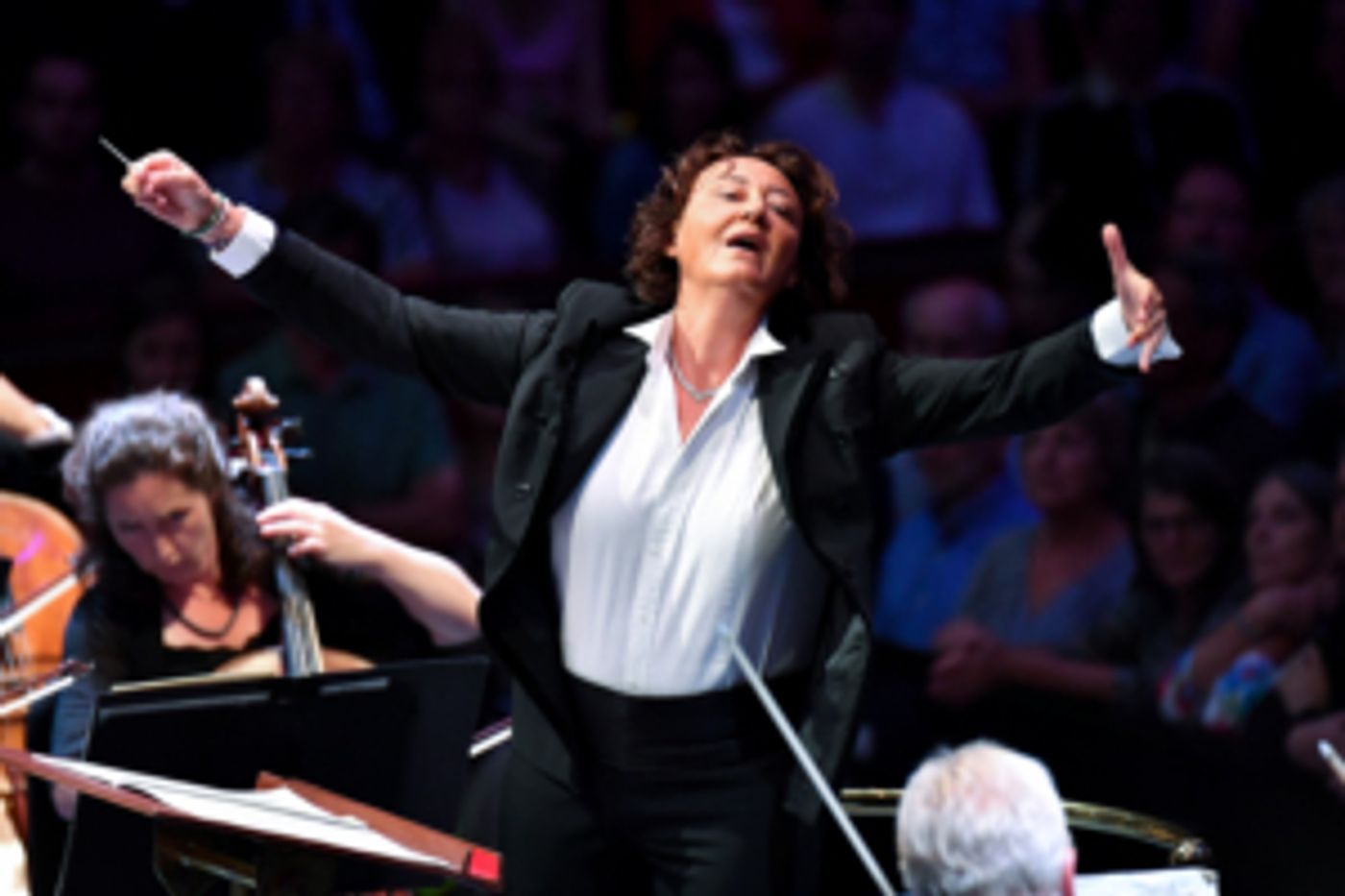Review: PROM 26: MOZART'S REQUIEM, Royal Albert Hall

![]() Prom 26: Mozart's Requiem is the perfect expression of the Proms in a darker mood; a captivating evening of music redolent of love, loss and death. This was a wonderfully emotionally charged concert, with powerful performances of epic pieces.
Prom 26: Mozart's Requiem is the perfect expression of the Proms in a darker mood; a captivating evening of music redolent of love, loss and death. This was a wonderfully emotionally charged concert, with powerful performances of epic pieces.
Written as a counter-balance to the jovial 'Academic Festival Overture' in 1880, Brahms wrote his great expression of musical tragedy, the 'Tragic Overture', that began the evening. The start of the work is startling with two piercing chords in D minor, rather than the more traditional slow introduction. The use of horns and trombones give a darker and more austere sound.
Conducted animatedly by French conductor Nathalie Stutzmann, the BBC National Orchestra of Wales, a regular fixture at the Proms, performed almost flawlessly. They are a very dynamic orchestra, with the musicians showing lots of organic movement and engagement as they really feel the music. A standout performer was first violin leader, Lesley Hatfield, who led with a dynamic and beautifully expressive performance.
The Prom continued with Wagner's 'Tristan and Isolde - Prelude and Liebestod', the orchestral version of the overture and Isolde's Act 3 aria. The piece opened with a quiet yearning cello, leading to the now-famously heartbreaking 'Tristan' chord.
Stutzmann skilfully brought out the deep emotion of this orchestral piece as the volume increases and then fades out into quiet of the opening again. The Liebestod section was suitably passionate, charged desire and tragedy.
The highlight of the evening was undoubtedly Mozart's choral masterpiece 'Requiem in D Minor'. This epic piece remains shrouded in mystery as it was Mozart's last composition; unfinished and commissioned by an unknown figure, later revealed to be Count von Walsegg who wanted to pass off the score as his own. It took ten years for Mozart's wife Constanze to persuade von Walsegg to admit that Mozart was the true composer.
Mozart was in very poor health when he began the composition; he was only able to complete the Requiem and Kyrie movements. He also sketched out some of the voice parts and bass lines for the rest of the composition and it was Mozart's pupil Süssmayer who skilfully completed the score after he died.
In composing what turned out to be his own requiem, Mozart achieved a unique voice and tone. He had only composed eight bars of the 'Lacrimosa' before he died, but the piece remains one of the ultimate expressions of intense musical grief. Mozart wrote the piece for four soloists (soprano, contralto, tenor, and bass), choir and symphonic orchestra. The solos are designed to be almost austere; there are no elaborate harmonies or flourishes.
Egyptian soprano Fatma Said made a fantastic Proms debut. One of BBC Radio 3 New Generation Artists in 2016, her soprano is clear, crisp and delicate.
Liverpudlian mezzo soprano Kathryn Rudge, also a BBC Radio 3 New Generation Artist, showed a wide range of emotion and connected well with the music.
South African tenor Sunnyboy Dladla returned to the Proms after his debut last year. His expressive and occasionally urgent tenor complimented Said's soprano beautifully. David Shipley controlled bass was sonorous and precise. The four soloists were expressive and showed beautiful control, especially during the 'Recordare'.
The BBC National Chorus of Wales was on wonderful form; it is astounding that such a professional-sounding choir retains its amateur status. The mighty 'Dies Irae' and 'Rex Tremendae' was where the power of the choir was shown to full effect; excelling at showing abject fear at the terrible wrath of God. The 'Lacrimosa' was stunning, showing absolute control and delicate timing, with the whispering 'Amen' muted and precisely refined.
This was a fabulous Prom, brimming with emotion and precise performances. The standing ovation was richly deserved.
The BBC Proms is at the Royal Albert Hall until 17 September
Photo Credit: BBC/Chris Christodoulou
Reader Reviews
Videos


